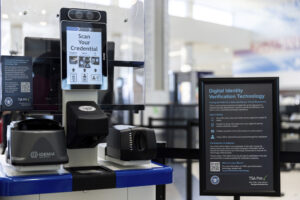Technologies have become a part of our lives. No matter how old or young you are, you definitely use different devices to ease your life. Some people really think that modern technology helps them make their lives easier, but there are also those who believe that all the technologies carry harm. Technologies can be detected in different fields of life, and students are no exception. Many tools exist to help students handle their academic duties, master their skills, and manage their time. Of course, you know that there are a lot of services that you can entrust your “write my research paper” requests, but the modern helping tools are not limited to these companies. Top spheres where people use technologies There is hardly a sphere that does not use modern technology. You may not even realize that technology is everywhere and everything you do or get is almost thanks to technology. So, here are some examples of how technology is used in our lives. Education. With modern technology, learners can study wherever they want, having only an Internet connection and a suitable device. Different E-learning platforms, where students can get “do my assignment” assistance, digital textbooks, virtual classrooms, and online courses make education more accessible and interactive. Communication. Smartphones, social media, video conferencing, and instant messaging enable global communication and connectivity. Healthcare. Medical technologies such as electronic health records (EHRs), telemedicine, medical imaging, wearable health devices, and robotic surgery are revolutionizing patient care and medical research. Finance. Such tools as online banking, mobile payment applications, cryptocurrencies, etc., are currently transforming the financial sphere. Transportation. GPS navigation, autonomous vehicles, ride-sharing apps, and electric vehicles influence our traveling opportunities and abilities. Entertainment. Virtual reality (VR), augmented reality (AR), gaming consoles, and social media platforms are the most frequently used forms of entertainment today. Retail. E-commerce, online marketplaces, digital payment systems, etc., reshape the retail sphere. Work and productivity. Cloud storage, collaborative tools, project management software, and other remote work technologies enhance productivity among employees and enable flexible working time. Manufacturing and industry. Robotics, the Internet of Things (IoT), and 3D printing play a massive role in today’s manufacturing processes. Agriculture. Precision farming, drones, IoT devices, and AI-driven analytics are improving crop management, yield, and sustainability in agriculture. Energy. Renewable energy technologies, smart grids, energy storage solutions, and advancements in battery technology provide sustainable energy practices. Security. Cybersecurity tools, biometric systems, surveillance technologies, and encryption methods help to protect data and ensure privacy when people share their personal data via the Internet. Of course, the human role is still significant, but a lot of stuff a person used to do by themselves can now be shared and substituted. Technologies and Education: The Impact on College Students Of course, students also use technologies in their lives, which can help them handle multiple tasks and meet deadlines. Most college learners say, “Having tools to do my essay is the best assistance for today’s busy life.” So, let’s take a closer look at how modern technology can help college learners streamline their assignments and manage their time. Task Management and productivity These tools can help students keep track of their college writing assignments, deadlines, and progress. With these apps, students can create to-do lists, manage their tasks, set deadlines, and track their progress on college assignments.




















